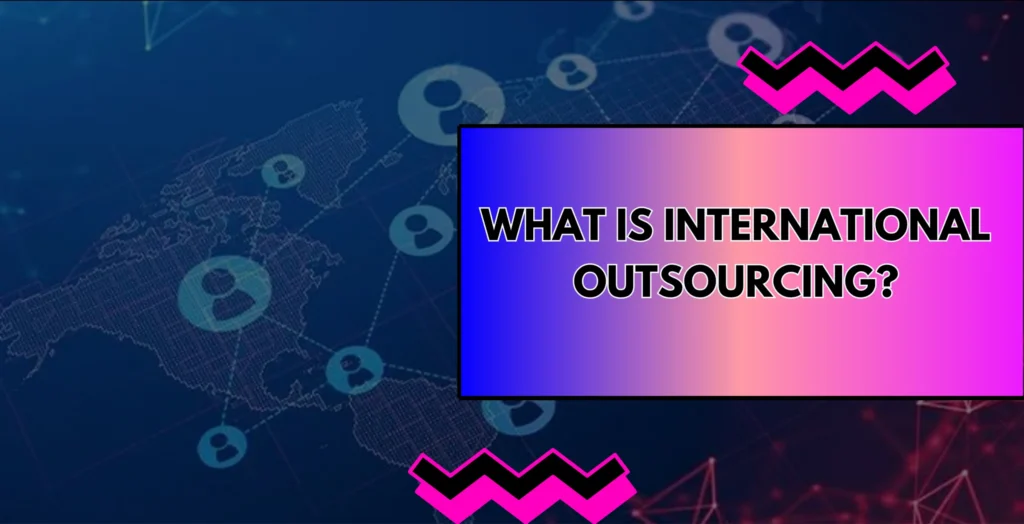Hiring a great DevOps Engineer can be a game-changer for your development pipeline, bridging the gap between software development and IT operations. But how do you attract the right talent? It all starts with a clear, compelling, and accurate job description. A well-crafted description acts as your first impression, setting expectations and drawing in candidates who have the precise skills you need to accelerate your workflows.
This guide will walk you through the essential components of a standout DevOps Engineer job description. We’ll cover key skills, roles, and salary expectations, and provide you with editable templates you can use right away.
Roles and Responsibilities of a DevOps Engineer
So, what does a DevOps Engineer actually do? The role is a unique blend of development and operations, focused on one primary goal: to shorten the systems development life cycle while delivering features, fixes, and updates frequently and reliably. This isn’t just about managing servers; it’s about building a culture of collaboration and automation.
The core responsibilities often include:
- Automating Infrastructure: Using tools like Terraform or Ansible to manage and provision infrastructure as code (IaC). This makes deployments predictable and repeatable.
- Building CI/CD Pipelines: Designing and maintaining continuous integration and continuous delivery (CI/CD) pipelines to automate the building, testing, and deployment of applications.
- Monitoring and Logging: Implementing robust monitoring and logging solutions to ensure system health, performance, and reliability. They proactively identify issues before they impact users.
- Collaboration and Communication: Acting as the crucial link between development and operations teams, ensuring smooth communication and a shared understanding of goals.
- Security Integration: Embedding security practices into the CI/CD pipeline (DevSecOps) to build secure applications from the ground up.
The problem is, if this role isn’t clearly defined, you risk attracting candidates who are purely system administrators or developers. The key is to emphasize the blend of skills required to build and maintain a seamless development lifecycle.
What skills are required of a DevOps engineer?
A successful DevOps Engineer needs a broad and deep technical skill set, combined with essential soft skills to foster a collaborative environment. Think of them as a jack-of-all-trades, but a master of automation and process improvement.
Technical Skills:
- CI/CD Tools: Deep expertise in tools like Jenkins, GitLab CI, CircleCI, or GitHub Actions.
- Cloud Platforms: Strong proficiency with at least one major cloud provider (AWS, Azure, or Google Cloud Platform).
- Infrastructure as Code (IaC): Hands-on experience with Terraform, Ansible, Puppet, or Chef.
- Containerization and Orchestration: Mastery of Docker and Kubernetes for packaging and managing applications.
- Scripting Languages: Fluency in languages like Python, Go, Bash, or PowerShell for automating tasks.
- Monitoring & Observability: Experience with tools such as Prometheus, Grafana, Datadog, or the ELK Stack.
- Version Control Systems: Advanced knowledge of Git and repository management platforms like GitHub or Bitbucket.
Soft Skills:
- Problem-Solving: The ability to diagnose complex issues across the entire stack, from code to infrastructure.
- Collaboration: A strong team-player mindset is non-negotiable. They must work closely with developers, QA, and operations.
- Strategic Thinking: The capacity to see the bigger picture and continuously look for ways to improve processes and workflows.
- Communication: Clear communication is vital for explaining technical concepts to different stakeholders and aligning teams.
DevOps engineer salary
Salaries for DevOps Engineers reflect their high-demand and specialized skill set. Compensation varies based on experience, location, and the complexity of the tech stack. Based on 2024 industry data, here’s a general breakdown:
- Junior DevOps Engineer (0-2 years): Typically earns between $90,000 and $120,000 per year. These roles focus on maintaining existing systems and learning the ropes.
- Mid-Level DevOps Engineer (3-5 years): Can expect a salary in the range of $120,000 to $155,000. They are responsible for designing and implementing new pipelines and automation.
- Senior DevOps Engineer (5+ years): Often commands a salary of $155,000 to $200,000 or more. These leaders architect entire DevOps strategies, mentor teams, and tackle the most complex infrastructure challenges.
The cost of living in major tech hubs and the specific industry can also significantly influence these figures.
Junior DevOps Engineer Job Description Template
Job Title: Junior DevOps Engineer
Job Summary:
We are looking for an enthusiastic Junior DevOps Engineer to join our growing team. In this role, you will help us build, automate, and maintain our development and production infrastructure. You will work closely with our senior engineers and development teams to support our CI/CD pipelines, monitor system health, and troubleshoot issues. This is an excellent opportunity for someone passionate about automation and cloud technologies to grow their skills in a collaborative environment.
Responsibilities:
- Assist in the management and improvement of our CI/CD pipeline.
- Support the deployment of applications to our cloud environments.
- Monitor system performance and alerts, and respond to incidents as they arise.
- Help automate manual processes using scripting languages like Python or Bash.
- Collaborate with developers to troubleshoot and resolve infrastructure-related issues.
- Contribute to documentation for our systems and processes.
Qualifications:
- Basic understanding of DevOps principles and CI/CD concepts.
- Familiarity with a major cloud platform (AWS, Azure, or GCP).
- Experience with Linux/Unix environments and command-line scripting.
- Exposure to version control systems, preferably Git.
- Eagerness to learn about containerization (Docker, Kubernetes) and Infrastructure as Code (Terraform, Ansible).
- Strong problem-solving skills and a proactive attitude.
- Bachelor’s degree in Computer Science, Engineering, or a related field is a plus.
Senior DevOps Engineer Job Description Template
Job Title: Senior DevOps Engineer
Job Summary:
We are seeking a highly experienced Senior DevOps Engineer to lead our infrastructure strategy and drive automation across the organization. You will be responsible for architecting, building, and scaling our cloud infrastructure and CI/CD pipelines. As a technical leader, you will mentor other engineers, champion best practices, and ensure our systems are secure, scalable, and highly available. The ideal candidate has a deep technical background and a proven track record of designing and maintaining complex, large-scale systems.
Responsibilities:
- Architect and implement scalable, resilient, and secure infrastructure on AWS/Azure/GCP.
- Lead the design and optimization of our CI/CD pipelines for multiple applications.
- Champion Infrastructure as Code (IaC) practices using tools like Terraform and Ansible.
- Drive the adoption of containerization and orchestration using Docker and Kubernetes.
- Develop and maintain a comprehensive monitoring, logging, and alerting strategy.
- Mentor junior and mid-level engineers, providing technical guidance and code reviews.
- Collaborate with development and security teams to embed security best practices (DevSecOps).
- Stay current with emerging technologies and advocate for their adoption where appropriate.
Qualifications:
- 5+ years of experience in a DevOps, SRE, or similar role.
- Expert-level knowledge of at least one major cloud provider (AWS preferred).
- Proven expertise in designing and managing CI/CD pipelines (e.g., Jenkins, GitLab CI).
- Extensive experience with Infrastructure as Code tools (Terraform is a must).
- Deep understanding of containerization (Docker) and orchestration (Kubernetes).
- Proficiency in scripting languages such as Python, Go, or Bash.
- Strong experience with monitoring and observability tools (e.g., Prometheus, Grafana, Datadog).
- Excellent leadership and communication skills.
Cloud DevOps Engineer (AWS) Job Description Template
Job Title: Cloud DevOps Engineer (AWS)
Job Summary:
We are looking for a skilled Cloud DevOps Engineer with a specialization in Amazon Web Services (AWS) to join our infrastructure team. You will be responsible for designing, managing, and optimizing our AWS cloud environment. Your primary focus will be on leveraging AWS services to build a secure, scalable, and cost-effective infrastructure that supports our applications. You will be the go-to expert for all things AWS, from networking and compute to serverless and security.
Responsibilities:
- Design and manage our AWS infrastructure, including VPC, EC2, S3, RDS, and IAM.
- Build and maintain CI/CD pipelines that deploy applications to AWS services like EKS, ECS, or Elastic Beanstalk.
- Implement and manage infrastructure as code using AWS CloudFormation or Terraform.
- Configure and manage monitoring and logging for AWS resources using CloudWatch, CloudTrail, and other tools.
- Ensure the security of our AWS environment by implementing security groups, NACLs, and IAM best practices.
- Optimize AWS costs by identifying and implementing cost-saving measures.
- Automate operational tasks using AWS Lambda, Systems Manager, and scripting.
Qualifications:
- Proven experience as a DevOps Engineer with a strong focus on AWS.
- In-depth knowledge of core AWS services (EC2, S3, VPC, IAM, RDS).
- Hands-on experience with AWS container services (EKS, ECS, Fargate).
- Proficiency with AWS-native IaC (CloudFormation) and/or Terraform.
- Experience with AWS monitoring and logging tools (CloudWatch, CloudTrail).
- Strong understanding of AWS security principles and best practices.
- AWS certifications (e.g., AWS Certified DevOps Engineer, Solutions Architect) are highly desirable.
- Experience with scripting languages like Python or Go.
Frequently Asked Questions (FAQ)
Q: What’s the difference between a DevOps Engineer and a Site Reliability Engineer (SRE)?
A: The roles are very similar and often overlap, but there’s a difference in focus. A DevOps Engineer focuses on building the CI/CD pipeline and bridging the gap between dev and ops. An SRE, a role originating at Google, is more focused on operational reliability, using software engineering principles to automate operations and set service level objectives (SLOs) to measure reliability.
Q: Should I hire a DevOps Engineer or just have my developers handle operations?
A: While some developers can handle operations (especially in small startups), a dedicated DevOps Engineer becomes essential as you scale. They bring specialized expertise in automation, infrastructure, and release management that allows your developers to focus on what they do best: building features. Investing in DevOps becomes a growth enabler for your entire engineering team.
Q: How can I make my DevOps job description more appealing?
A: Be specific about your tech stack and the challenges you’re facing. Top engineers want to solve interesting problems. Highlight your company culture, opportunities for learning (e.g., conference budgets), and the impact the role will have. Mentioning your approach to work-life balance or remote work flexibility can also be a major draw.
Q: What are the most important tools to list in the job description?
A: Focus on the core components of your stack. Be sure to list your cloud provider (AWS, Azure, GCP), your CI/CD tool (Jenkins, GitLab CI), your IaC tool (Terraform, Ansible), and your container orchestration platform (Kubernetes). Being precise helps candidates self-select and ensures you get applicants with relevant experience.









